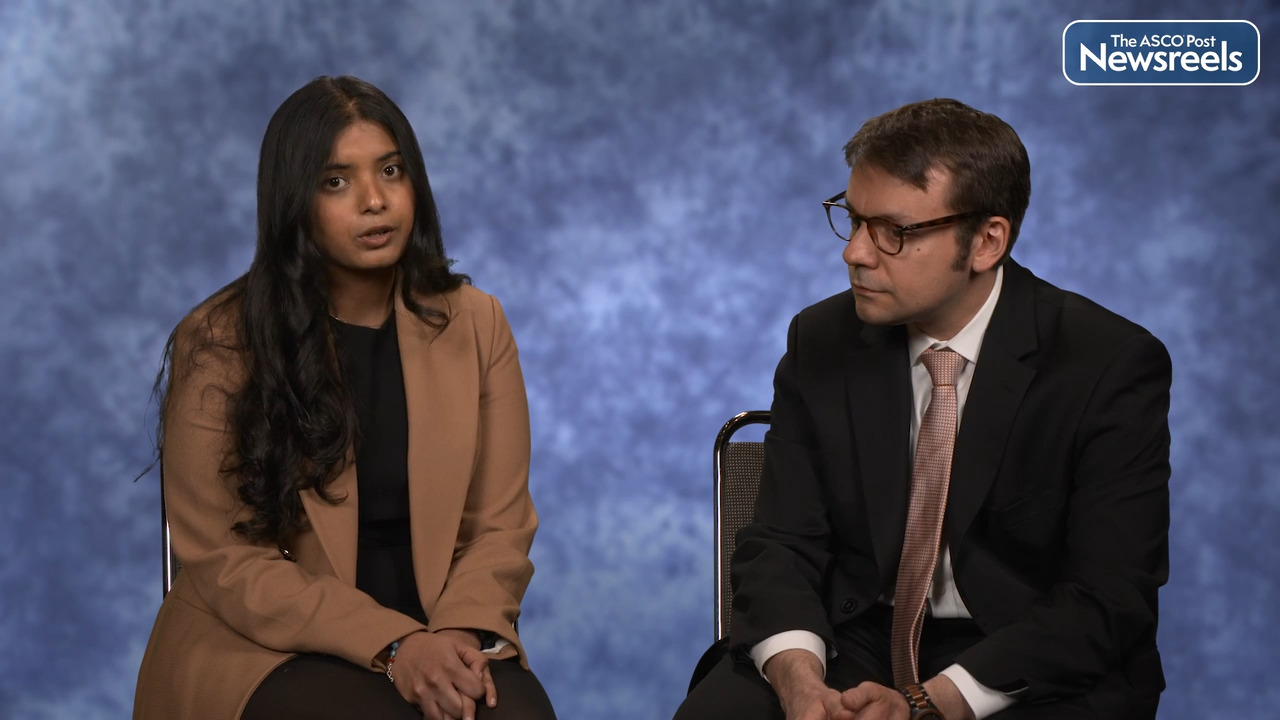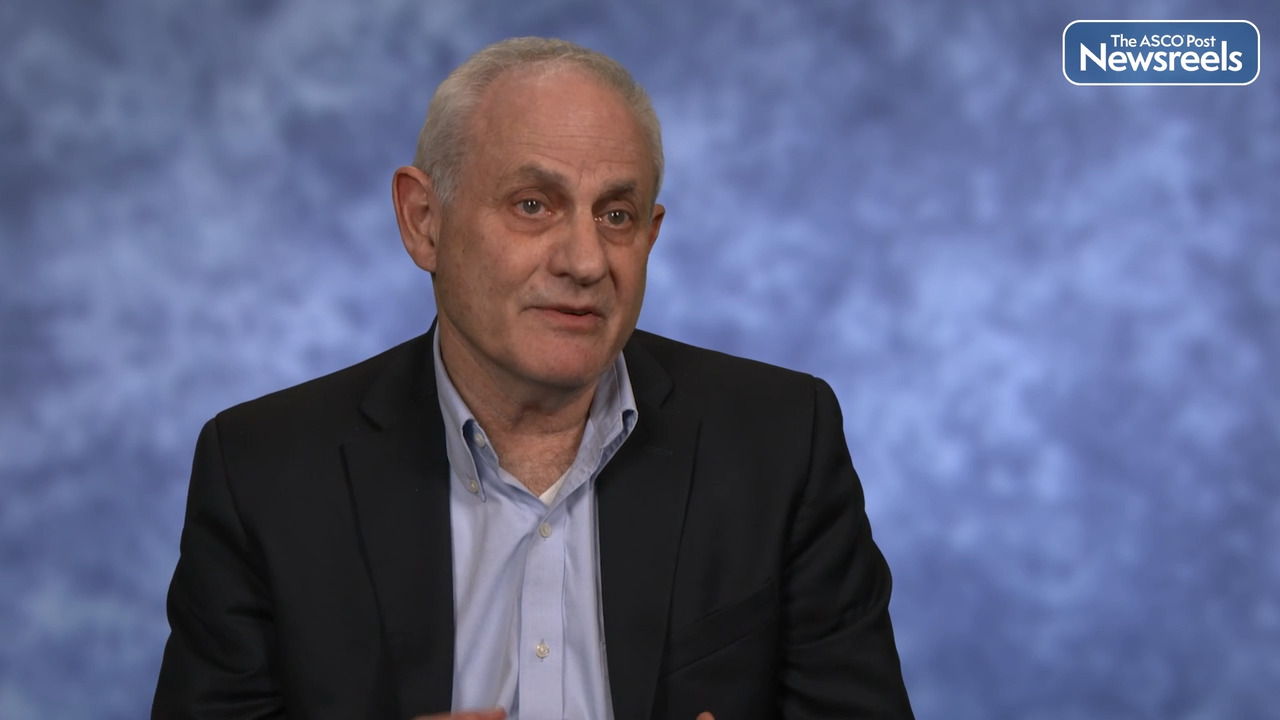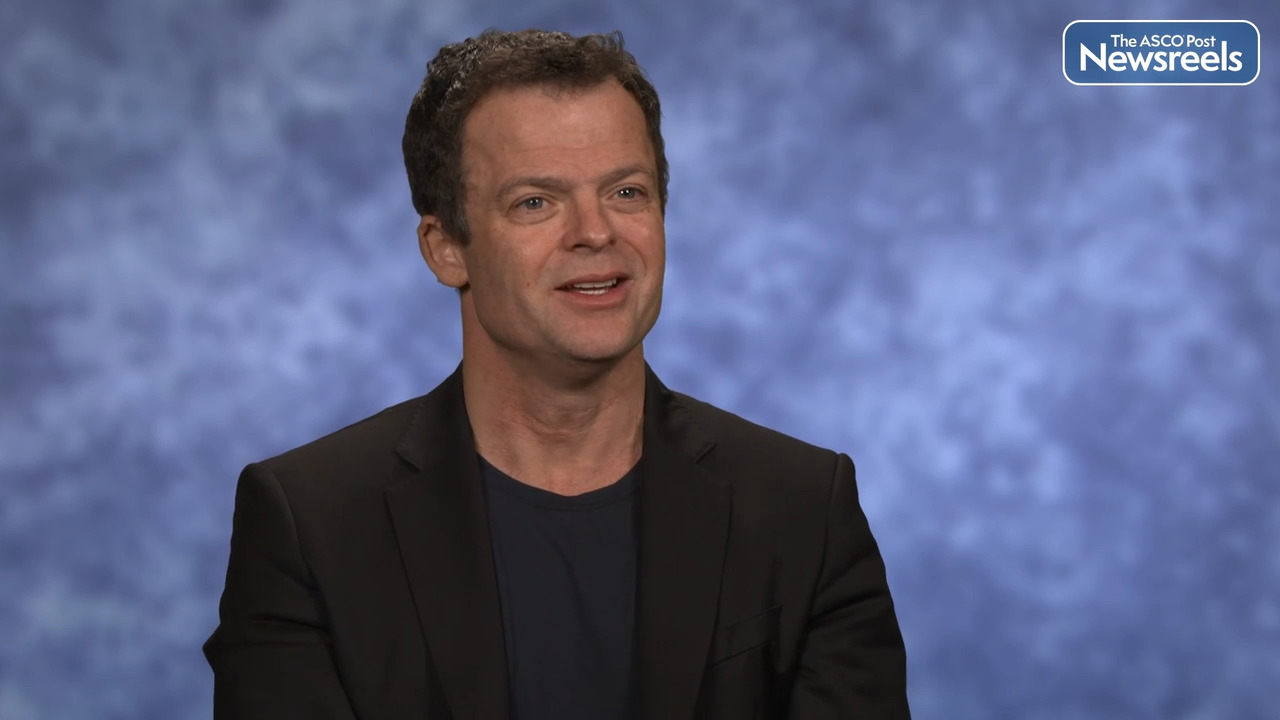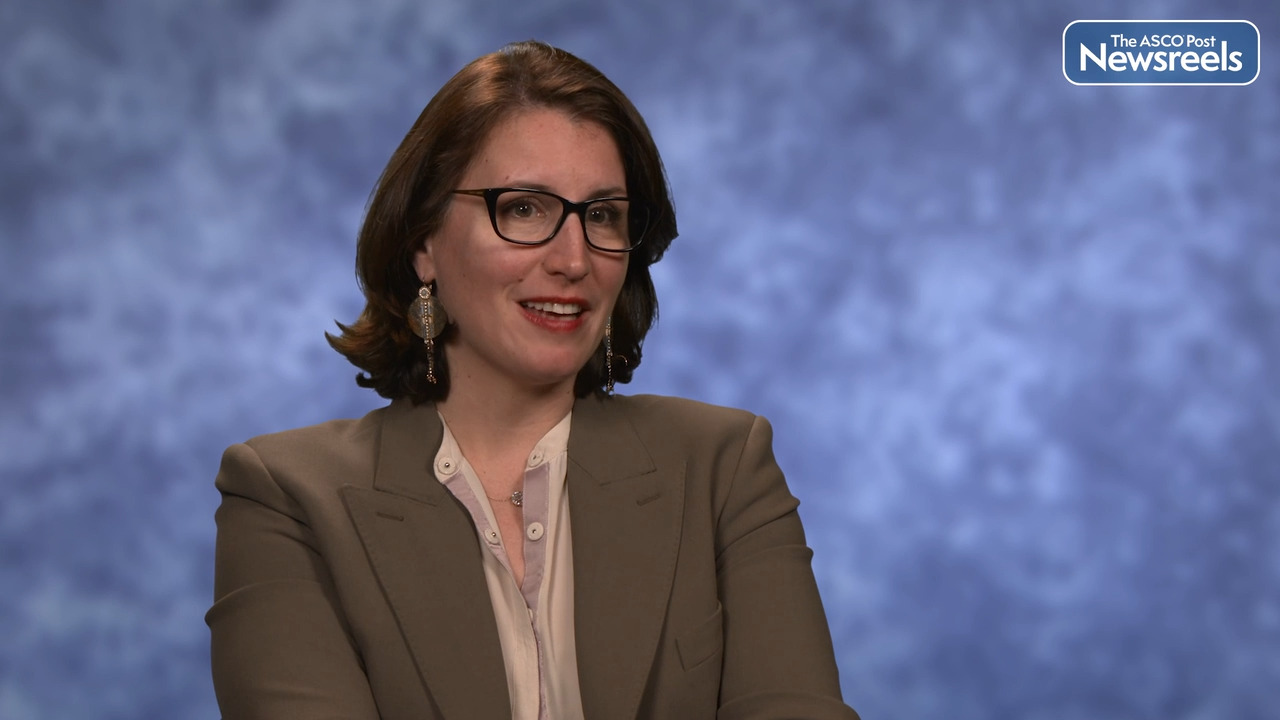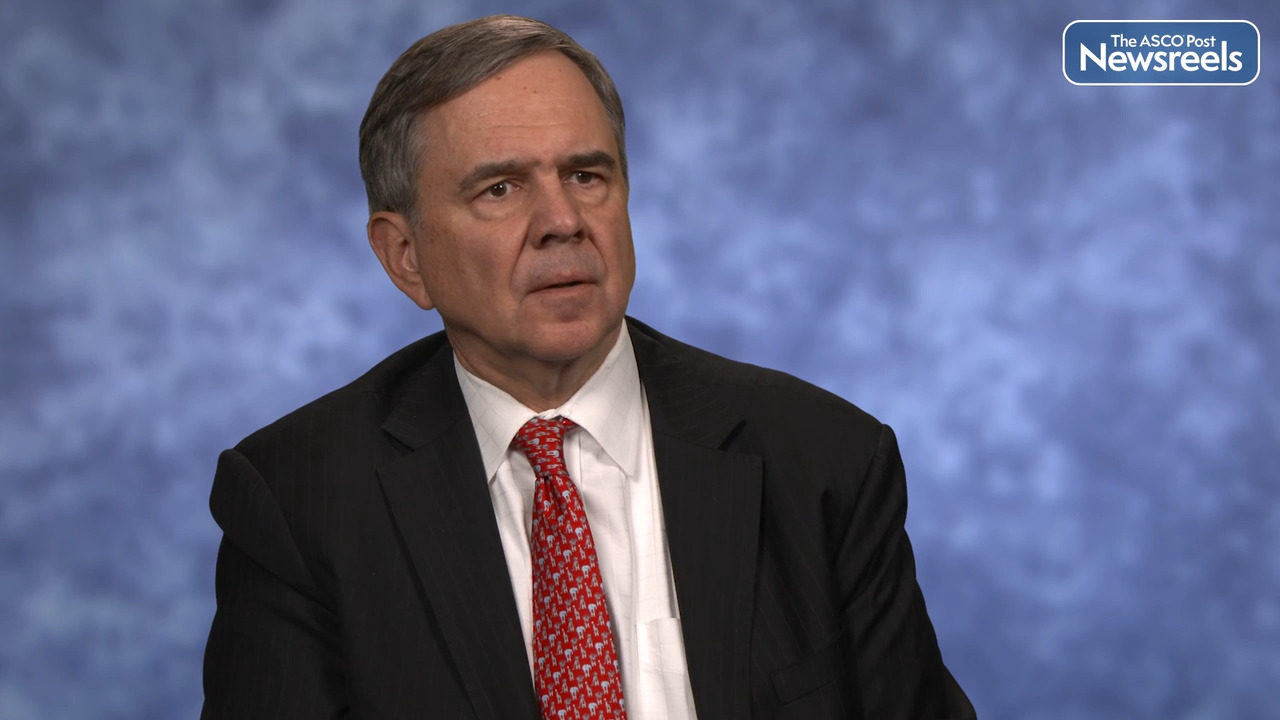Matt D. Galsky, MD, on Urothelial Carcinoma: New Study Results on Atezolizumab, Platinum, and Gemcitabine
2023 ASCO Genitourinary Cancers Symposium
Matt D. Galsky, MD, of the Icahn School of Medicine at Mount Sinai and Tisch Cancer Institute, discusses final overall survival data from the phase III IMvigor130 study, which compared atezolizumab versus placebo, both of which were paired with platinum and gemcitabine in the first-line treatment of patients with locally advanced or metastatic urothelial carcinoma. (Abstract LBA440).
Transcript
Disclaimer: This video transcript has not been proofread or edited and may contain errors.
IMvigor130 is a phase 3 study that compared three treatment arms for the first line treatment of metastatic urothelial cancer. Treatment with platinum-based chemotherapy, treatment with atezolizumab the PD-L1 inhibitor, or the combination of platinum-based chemotherapy plus atezolizumab.
The study had co-primary endpoints, progression-free survival comparing chemo versus chemo plus atezo, and overall survival that was a co-primary endpoint as well. The progression-free survival endpoint has previously been reported in the trial MAP that endpoint showing a PFS benefit with chemo plus atezo versus chemo alone.
Overall survival has been assessed at multiple interim analysis, and then at ASCO GU 2023, the final analysis for overall survival. The hazard ratio for overall survival was 0.85 with an upper bound of the 95% competence interval of one, and it didn't meet the pre-specified threshold for statistical significance. So chemotherapy plus atezolizumab improves progression-free survival, but not overall survival based on the threshold specified in the statistical analysis plan.
The study did show however, that when you look at the type of platinum-based chemotherapy that patients received, if they received cisplatin-based chemotherapy, there did seem to be a beneficial effect combining with atezolizumab versus carboplatin-based chemotherapy. This is hypothesis generating data, but it really highlights the potential importance of the chemotherapy backbone when we combine with immune checkpoint blockade and there's immunologic data that support that clinical finding that's being used to generate hypotheses to be tested in the next generation of clinical trials.
Because chemotherapy plus atezolizumab did not improve overall survival compared to chemotherapy alone, this does not impact standard of care as it has in other solid tumors where we see combination of chemotherapy plus immune checkpoint blockade becoming a standard of care. But based on the patient population enrolled and the mix of chemotherapy backbones with cisplatin and carboplatin, there is hypothesis generating data that will be tested in future studies to determine whether or not the choice of chemotherapy backbone actually makes the difference when combining chemotherapy and immune checkpoint blockade.
The ASCO Post Staff
Vadim S. Koshkin, MD, and Tanya Jindal, BS, BA, both of the University of California, San Francisco, Helen Diller Family Comprehensive Cancer Center, discuss results from the retrospective UNITE study of biomarkers of response to the antibody-drug conjugate enfortumab vedotin-ejfv in patients with advanced urothelial carcinoma. Enfortumab vedotin is used widely in treatment-refractory disease, but there have been limited data available on biomarkers that may predict outcomes with this treatment. The UNITE study has now identified several potential biomarkers that need to be validated to help inform clinical decision-making and therapy sequencing. (Abstract 450).
The ASCO Post Staff
Michael B. Atkins, MD, of Georgetown Lombardi Comprehensive Cancer Center, discusses treatment-free survival outcomes from the HCRN GU16-260-Cohort A study of patients with previously untreated advanced clear cell renal cell carcinoma who received nivolumab and salvage nivolumab plus ipilimumab. The regimen appears to result in substantial treatment-free survival with few treatment-related adverse events. (Abstract 604).
The ASCO Post Staff
Thomas Powles, MD, PhD, of Barts Health NHS Trust, Queen Mary University of London, discusses new data from the COSMIC-313 study of patients with advanced renal cell carcinoma of IMDC (International Metastatic RCC Database Consortium) intermediate or poor risk. Those who received cabozantinib instead of placebo with nivolumab and ipilimumab as first-line treatment seemed to experience improved progression-free survival. A subgroup analysis suggested the benefit was primarily in patients with an intermediate risk. Follow-up for overall survival is ongoing. (Abstract 605).
The ASCO Post Staff
Laurence Albiges, MD, PhD, of France’s Gustave Roussy Cancer Centre, discusses interim results from the CaboPoint study, which evaluated cabozantinib as second-line treatment in patients with unresectable, locally advanced or metastatic renal cell carcinoma with a clear cell component. Disease in the study participants had progressed after prior treatment with ipilimumab and nivolumab in combination or combined with VEGF-targeted therapy. (Abstract 606).
The ASCO Post Staff
Daniel P. Petrylak, MD, of the Yale Cancer Center, discusses a primary phase II analysis of the TROPHY-U-01 study, cohort 2, which evaluated sacituzumab govitecan-hziy in platinum-ineligible patients with metastatic urothelial cancer that progressed after prior checkpoint inhibitor therapy. (Abstract 520).
